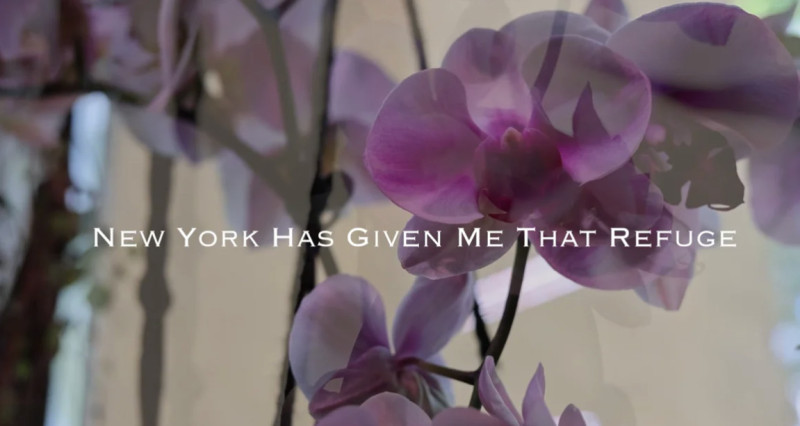
New York has given me that Refuge
In this film, refugee South Asian LGBTQ+ activist Barbara Khan talks about her migration from Pakistan and her life in New York as a trans woman.

What does your network look like in New York?
Maybe this is not typical for every immigrant refugee or displaced person. I am aware of that…that has more to do with my… I don’t know my training as a politician, my background organizing people or my insistent feeling of talking to people and making sure we do something for ourselves and our community. I am very well connected at this point, I came to New York without not knowing anyone, but I came with the specific goals to organize the community to make sure to know who was where, in which industries. Who were the wealthy of Venezuelans that could help others, who were the business people, who were those having relationships with the city with different officials and also within the private sector….since the UN is here with all the diplomatic corps that makes life in New York, especially consulates that are offering services to Venezuelans. Given that we don’t have a consulate. So depending at the level, I might know somebody or they might know someone and that network of support I build it again for the cause of my country. And now since Columbia University gave the first scholarship for refugee that and I believe we have launched in 2020 and I am one of the first recipients and the only Venezuelan and only Latino, so that always opens more doors. And that’s what I’ve been trying to use all this efficiently to support my community, but also other people facing the same circumstances and challenges.
And when you say “my community” you’re saying other Venezuelans, right?
Yeah. I’m technically the console of Venezuela in New York, I have the keys for the consulate I was reconstructing and stuff. But we never were able for political challenges and people that are happening there.
Is that your job, is it part of your work?
It’s more of part of my activism, like de-facto console or organizing now that more Venezuelans are crossing the border to the U.S., the southern border. Many Texan organizations are sending them to New York, so more and more we starting having people on the streets, in these shelters. And now we’re trying to speed up the process…The lawyer that was helping me just backed out, so now I need to figure out how to get that support to finish the foundation because there are more people with need coming to New York… I need at least an organization to back up all these relationships because again, as of now, it’s just Eric and his community, because honestly, they’re being organized even before I moved here, some of them and the others have taken more form in a sense or being more impactful of what we have done by me creating the strategy of getting united.
Do you have support from your community? Do you feel it?
Yeah, to be honest I backed up after the pandemic… I tried to support people, but then there was more of put the mask on yourself first before trying to put it to others. We tried to organize food collecting, but then the crisis started knocking at everybody’s doors. So, since the pandemic and also, I went to Columbia, I needed these two years of not doing anything for, but for me to learn to process and to research what to do. We haven’t made it, so definitely something wrong we have been doing… I decided to back up and lately I’ve been like not going to events with Venezuelans more and more. And there is a backlash of support with the opposition and the Venezuelan cost because of frustration, lack of interest or anger, everything. So, I’ve always made sure that that doesn’t affects me, because I know I’m not there, or even if I would be there, like: OK, who are you to tell people what to do if you’re not doing it by yourself? I know I’ve done all that I can. So, by that attitude I’ve been approaching to my community again, thinking in my brain that I had something to explain or to skills or to defend but fortunately they have been more supportive than I thought. And all of them have been like: Where have you been? We we’re looking for you, we’re waiting for you to organize stuff. I know I have the recognition which humbles me because this is a big responsibility that everywhere I go, especially lately, at least I know one person that knows who I am and always comes to talk to me about something. So, I gotta always be together…
Eric is a political refugee, co-founder of a political party from Venezuela and activist originally from Caracas, born in 1988. He was forced to leave his country in 2014 because of the regime and the dictatorship in Venezuela. In 2020 he has recieved a scholarship from Columbia University. Currently he is living in New York and is actively supporting the refugees and migrants from Venezuela. Eric is seen as the consul of Venezuela in New York.
New York today The Decision to Flee and Experiences of Flight
Interview conducted by the We Refugees Archive team with Eric in the summer of 2022. The interview was edited for length and clarity.